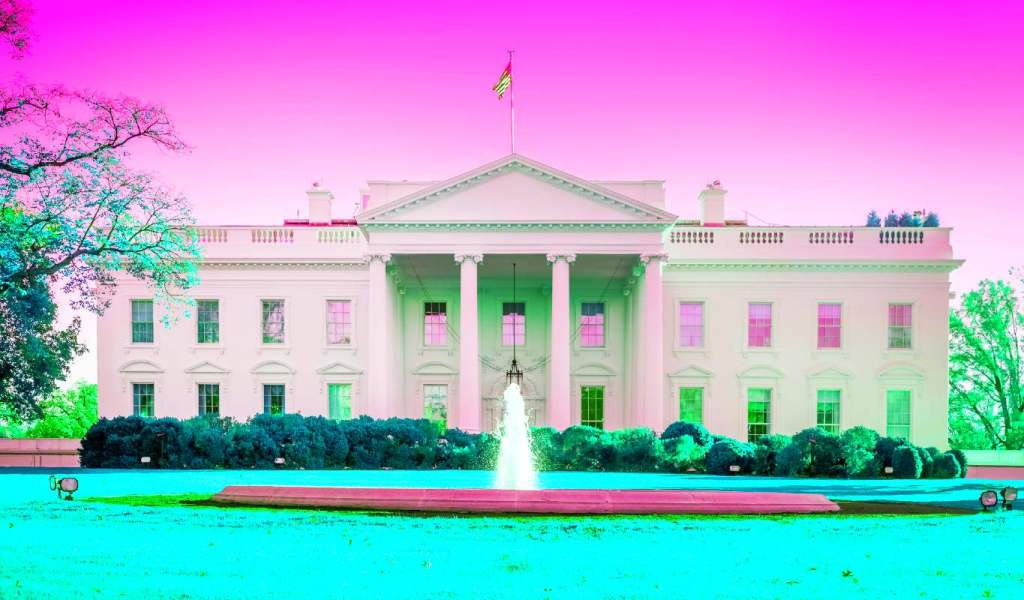 Lawmakers in 20 U.S. states are pushing bitcoin reserve bills that could inject $23 billion (247K BTC) into the market, according to Vaneck’s head of digital assets research, who calls the estimate conservative. 20 State Bitcoin Bills Could Unleash a $23 Billion Buying Wave—247K BTC at Stake Lawmakers across 20 U.S. states have introduced bills […]
Lawmakers in 20 U.S. states are pushing bitcoin reserve bills that could inject $23 billion (247K BTC) into the market, according to Vaneck’s head of digital assets research, who calls the estimate conservative. 20 State Bitcoin Bills Could Unleash a $23 Billion Buying Wave—247K BTC at Stake Lawmakers across 20 U.S. states have introduced bills […] Florida is moving to integrate bitcoin into its financial strategy, with a new bill proposing the state invest public funds in cryptocurrency as a hedge against inflation. Florida Explores Bitcoin Adoption for State Reserves Florida State Senator Joe Gruters filed a bill on Friday that would allow the state’s chief financial officer to invest public […]
Florida is moving to integrate bitcoin into its financial strategy, with a new bill proposing the state invest public funds in cryptocurrency as a hedge against inflation. Florida Explores Bitcoin Adoption for State Reserves Florida State Senator Joe Gruters filed a bill on Friday that would allow the state’s chief financial officer to invest public […] Texas is advancing plans for a strategic bitcoin reserve, aiming to strengthen its financial security, encourage community investment, and reinforce its role in digital asset innovation. Bitcoin Reserve Bill Progresses in Texas Legislature The Texas Strategic Bitcoin Reserve Act was read on Feb. 7 and referred to the Senate Finance Committee for review. Senate Bill […]
Texas is advancing plans for a strategic bitcoin reserve, aiming to strengthen its financial security, encourage community investment, and reinforce its role in digital asset innovation. Bitcoin Reserve Bill Progresses in Texas Legislature The Texas Strategic Bitcoin Reserve Act was read on Feb. 7 and referred to the Senate Finance Committee for review. Senate Bill […]

The UK Treasury has amended finance laws to clarify that crypto staking isn’t a collective investment scheme, which a lawyer says is “heavily regulated.”
The UK Treasury has amended a law clarifying that crypto staking — necessary for proof-of-stake blockchains such as Ethereum and Solana — doesn’t fall under the definition of a “collective investment scheme,” which is typically heavily regulated.
A Jan. 8 order from the department amends a section of The Financial Services and Markets Act 2000 about group investments, adding that “arrangements for qualifying cryptoasset staking do not amount to a collective investment scheme [CIS].”
It clarifies that “qualifying cryptoasset staking” means validating transactions on a blockchain, a distributed ledger technology network “or other similar technology.”

Ohio has become the third US state behind Texas and Pennsylvania to see bills introduced to establish Bitcoin reserves as part of the state’s treasury.
An Ohio House of Representatives lawmaker has introduced a bill to establish a Bitcoin fund in the state’s treasury, marking the third US state to do so in just over a month.
Ohio House Republicans leader Derek Merrin on Dec. 17 introduced HB 703, tentatively titled the Ohio Bitcoin Reserve Act, which would give the state treasurer authority to purchase Bitcoin as part of “proper asset allocation,” though it does not require it.
“The U.S. Dollar is being rapidly devalued, and our State Treasurer should have the authority and flexibility to invest in Bitcoin when determining proper asset allocation,” Merrin said in a statement. “Ohio must embrace technology and protect tax dollars from eroding.”

The crypto advocacy group says it is hand-delivering letters to every US Senator explaining why Bitcoin would help the US secure its position as a world leader.
The Digital Chamber, a prominent digital asset advocate in the United States, is calling on US lawmakers to vote in favor of the Bitcoin reserve bill recently introduced by Wyoming Senator Cynthia Lummis.
In an Aug. 1 post on X, the lobby group said it is hand-delivering a letter to “every US Senator,” which will explain that adding Bitcoin (BTC) to America’s balance sheet can secure its position as a “global leader” and provide more stability in the face of “global economic uncertainties.”
Lummis introduced the Boosting Innovation, Technology, and Competitiveness through Optimized Investment Nationwide Act of 2024 (or Bitcoin Act of 2024) on July 31. This bill would see the US Treasury set up Bitcoin vaults and buy 1 million Bitcoin over five years.

The White House has signalled it won’t veto the passage of the FIT21 bill despite U.S. Securities and Exchange Commission Chair Gary Gensler advocating against it. In a new press release, the White House says it does not support HR 4763, also known as the Financial Innovation and Technology for the 21st Century Act (FIT21), […]
The post White House Won’t Veto Passage of FIT21 Despite Opposition From SEC Chair Gary Gensler appeared first on The Daily Hodl.

The SEC’s proposed crypto custody rule and its “hostility” to the industry isn’t in Joe Biden’s “best interests,” Representative Wiley Nickel told Gary Gensler.
The United States securities regulator has turned crypto regulation into a “political football,” and its “open hostility” isn’t helping President Joe Biden, says Representative Wiley Nickel.
In a May 15 letter to Securities and Exchange Commission Chair Gary Gensler, Nickel, a Democrat, claimed the regulator ran contrary to its mission to protect investors and breached its authority in trying to pass the controversial Staff Accounting Bulletin 121, or SAB 121.
SAB 121 is a proposed rule mandating that SEC-reporting entities custodying crypto must record those holdings as liabilities on their balance sheets.

A nonprofit crypto advocacy group says that a stablecoin bill proposed earlier this week by two US senators would violate free speech rights. In a new article, Coin Center says that the bipartisan stablecoin bill – proposed by Republican Senator Cynthia Lummis of Wyoming and Democrat Senator Kirsten Gillibrand of New York – is unconstitutional […]
The post New Stablecoin Bill Would Violate Free Speech Rights, Says Crypto Advocacy Group Coin Center appeared first on The Daily Hodl.

The bills aim to create a regulatory framework for payment stablecoins and enshrine rights for crypto users to self-custody digital assets.
The House Financial Services Committee has advanced another two landmark crypto bills previously under consideration — with one aiming to better regulate stablecoin issuers and another seen as positive for crypto self-custody in the United States.
On July 28 the Committee said the Clarity for Payment Stablecoins Act and the Keep Your Coins Act were passed alongside five other finance-related bills.
Respectively the bills aim to provide regulations on the issuance of payment stablecoins and ensure crypto users are permitted to maintain custody of their assets in self-custodial wallets.
Coinbase chief policy officer Faryar Shirzad said in response to the bills passing that it's a "historic week" for crypto regulation.
Yet more congratulations to @PatrickMcHenry for getting the Clarity for Payment Stablecoins Act across the line with bipartisan support. It’s been a historic week, and a big step forward for consumer protection. https://t.co/7bRgAotAD6
— Faryar Shirzad (@faryarshirzad) July 28, 2023
On July 26, the Committee passed the Financial Innovation and Technology (FIT) for the 21st Century Act and the Blockchain Regulatory Certainty Act.
Related: Rep. Patrick McHenry blames White House for lack of urgency on stablecoin bill negotiations
The bills respectively establish when crypto firms have to register with regulators and set guidelines for projects such as miners and decentralized finance (DeFi) platforms.
On July 27, the FIT for the 21st Century Act also passed the House Agriculture Committee.
Magazine: Crypto regulation — Does SEC Chair Gary Gensler have the final say?